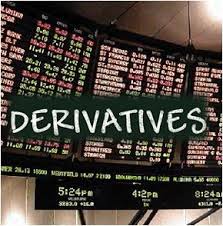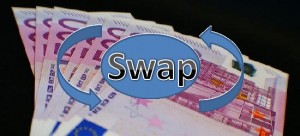Financial Derivatives are instruments that allow financial risks to be traded directly because each derivative is linked to a specific instrument or indicator (e.g. a stock market index) or commodity.
The derivative is a contract which gives one party a claim on an underlying asset (e.g. a bond, commodity, currency, equity) or cash value of the asset, at some fixed date in the future.
The other party is bound by the contract to meet the corresponding liability. A derivative is said to be a contingent instrument because its value will depend on the future performance of the underlying assets. The traded derivatives that are sold in well-established markets give both parties more flexibility than the exchange of the underlying asset or commodity.
Consider the case of the pig farmer who knows that in six months’ time s/he will have a quantity of pork bellies to sell. The farmer wishes to hedge against the fluctuation in pork belly prices over this period. He/she can do so by selling (going short) a six-month ‘‘future’’ in six months’ time, at an agreed fixed price on the day the future is sold. The agent buying the pork belly future goes long, and is contractually bound to purchase the pork bellies in six months’ time. The financial risk being traded is the risk that the value of pork bellies will change over six months: the farmer does not want the risk, and pays a counter party to assume it.
The price of the future will reflect the premium charged by the buyer for assuming the risk of fluctuating pork belly prices. The underlying asset (or ‘‘underlying’’) is a commodity, pork bellies, and the futures contract is the contingent claim. If the actual a commodity, pork bellies, and the futures contract is the contingent claim. If the actual pork bellies had been sold, the farmer would face uncertainty about price fluctuations and might also incur some cost from seeking out a buyer for an arm’s-length contract.
The future increases the flexibility of the market because it is sold on an established market. Similarly, in the currency markets, futures make it unnecessary for the actual currency (the underlying instrument) to be traded.
Click here for government certification in Accounting, Banking & Finance





6 Comments. Leave new
Good job 🙂
Very informative..!
An appreciable choice of topic.
Good job!!
Great work but 😀 something new for me 😀
The title was not at all catchy you should look into that but the content was really Good 😀 well researched and well excecuted 😀
Make sure you use a bit simpler language because that may attract more readers 😀
well articulated 🙂